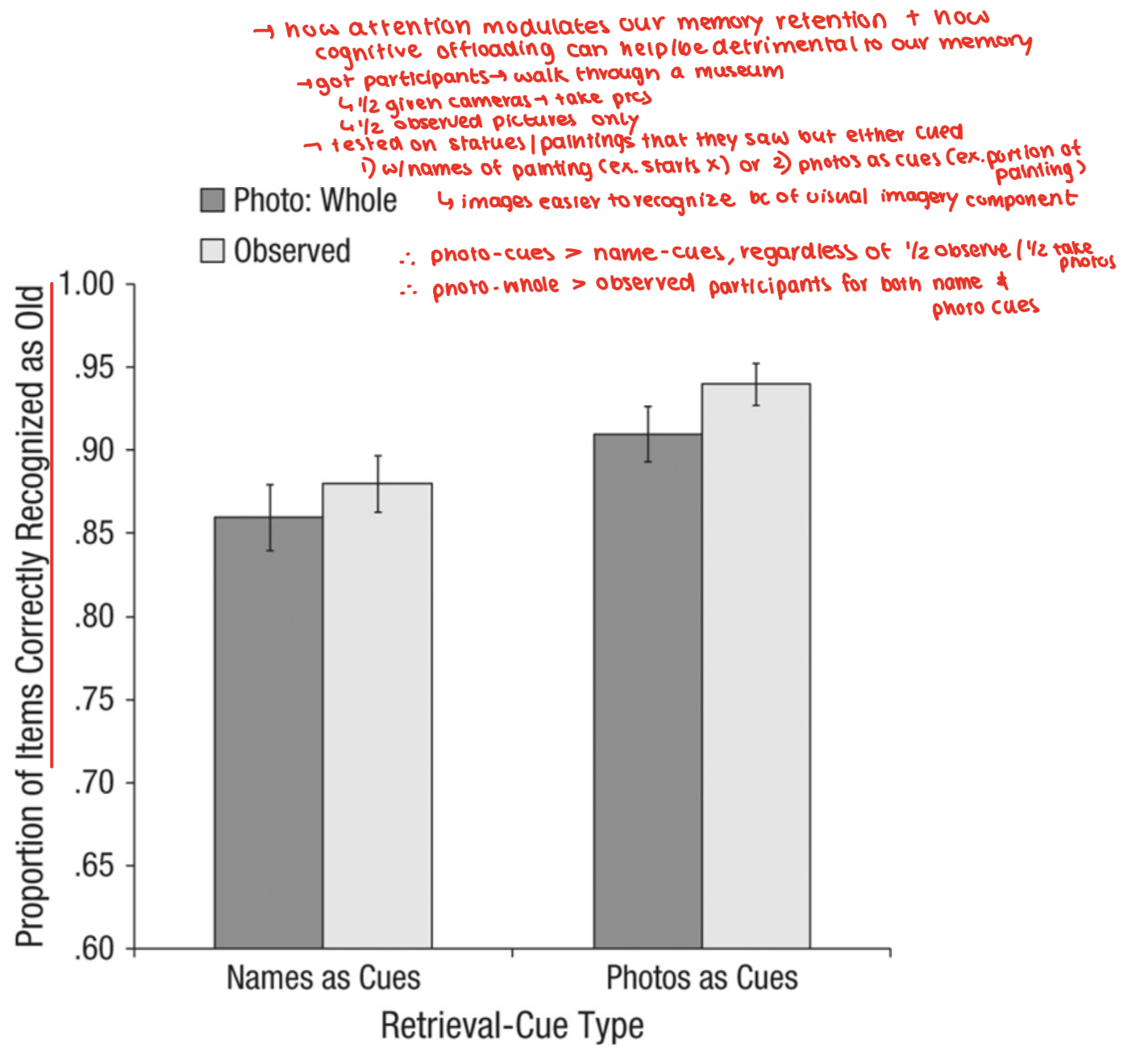PSY372 Lecture 6: Forgetting & amnesia
1/13
There's no tags or description
Looks like no tags are added yet.
Name | Mastery | Learn | Test | Matching | Spaced |
|---|
No study sessions yet.
14 Terms
Memory Failures
Gain focus when forgetting occurs
More aware of memory during memory failures
2 types: normal vs. catastrophic forgetting
Forgetting Mechanisms
Seven sins
Decay
Interference and inhibition
Directed forgetting
Seven sins of memory
Transcience
Absent-mindedness
Blocking
Misattribution
Suggestibility
Bias
Persistence
Transience
Forgetting over time (Ebbinghaus curve)
Decay
Fragmented memories reconstructed with general knowledge
Typically in older memories → start filling gaps with schemas for that fragmented memory (reconstruction)
Virtue of transience
We know our brains are limited → if we remember everything, we would not be able to function
Memory filters out information that we might not need → manages our memory storage
Absent-mindedness
Attention
If you pay attention to what you’re trying to remember, you’re more likely to remember it later on
Lack of focus during encoding → memory gaps
Encoding vs. retrieval
Detrimental during encoding, helpful during retrieval
Virtue of absent-mindedness
Virtue during retrieval
If you have distractors during retrieval when trying to pay attention → harder time retrieving that info but your retrieval may actually improve
Divided attention → creating more memory traces → ↑ likelihood of retrieval of that info
Absent-mindedness: Study
Now attention modulates our memory retention and now cognitive offloading can help/be detrimental to our memory
Participants walked through a museum
½ were given cameras to take photos
½ observed pictures only
Tested on statues/paintings they saw
½ cued with names of the painting (ex. starting letter)
½ cued with photos (ex. portion of pic)
Findings:
Photo cues > name cues, regardless of whether they observed or took the photos
Photo-whole > observed participants for both name and photo cues
Explanation:
When you cognitively offload onto camera → just take photo → refer to it later
You don’t end up consolidating that information → ↓ attention → ↓ recall

Blocking
Inhibition
Difficulty retrieving a memory due to interference from similar memories
Cue overload: when multiple memories are linked to a single cue, retrieval is less effective
Ex. given multiple words that start with “C“ to memorize → if cued with the letter “C“, any of those words could be recalled
Virtues of blocking
Teach yourself to inhibit interferences to accomplish a goal
Challenge to memorize list of similar words → challenge yourself → try harder to remember info (strategies) → remembering info better and making it easier to remember in the future
Misattribution
Recall of correct content but mistaking the source
Ex. remembering info from a movie but thinking it’s from a book
More internal
Suggestibility
Memory ditrotion from external information
Occurs with both intentional and unintentional misinformation
Intentional misattribution to different sources
Unintentional misspeaking and correcting later → mistake still sticks
More external